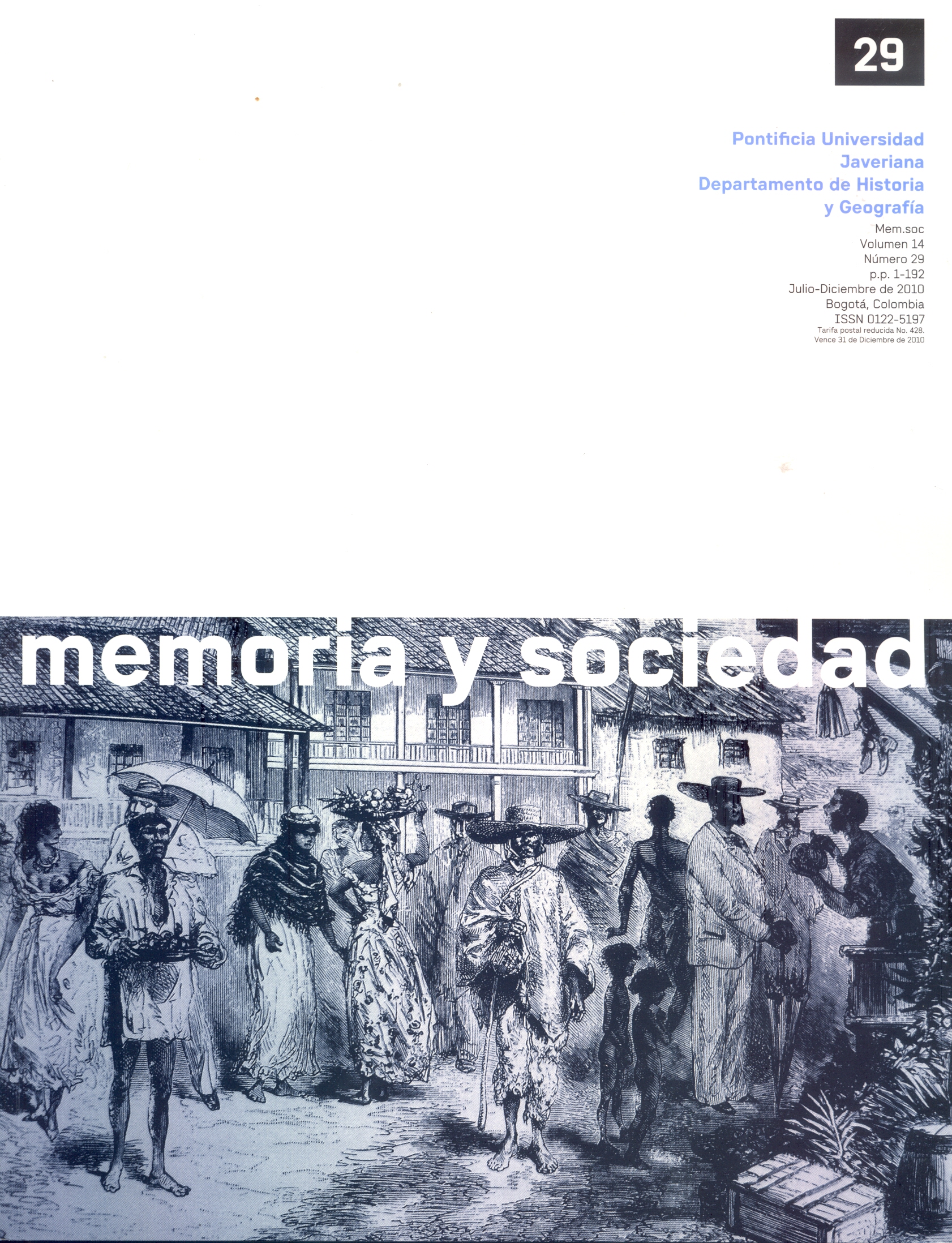Abstract
This work analyzes the “negro” representation in the projects of folklore diffusion that spread in the decade 1950-1960 as a product of a socio-political context characterized for its need to redefine national Latin-American identities. In Colombia, this process started in 1930 through the Liberal Republic educational policy, and was designed from the idea of a “mixed race country”. The following document carefully explores the work and cultural management exerted by Delia and Manuel Zapata Olivella, two important milestones in the intellectual and cultural fields of the country. They became known for their contribution to the understanding of folklore and the inclusion of “negros” within national memory.The journal Memoria y Sociedad is registered under a Creative Commons Attribution 4.0 International Public License. Thus, this work may be reproduced, distributed, and publicly shared in digital format, as long as the names of the authors and Pontificia Universidad Javeriana are acknowledged. Others are allowed to quote, adapt, transform, auto-archive, republish, and create based on this material, for any purpose (even commercial ones), provided the authorship is duly acknowledged, a link to the original work is provided, and it is specified if changes have been made. Pontificia Universidad Javeriana does not hold the rights of published works and the authors are solely responsible for the contents of their works; they keep the moral, intellectual, privacy, and publicity rights.
Approving the intervention of the work (review, copy-editing, translation, layout) and the following outreach, are granted through an use license and not through an assignment of rights. This means the journal and Pontificia Universidad Javeriana cannot be held responsible for any ethical malpractice by the authors. As a consequence of the protection granted by the use license, the journal is not required to publish recantations or modify information already published, unless the errata stems from the editorial management process. Publishing contents in this journal does not generate royalties for contributors.

